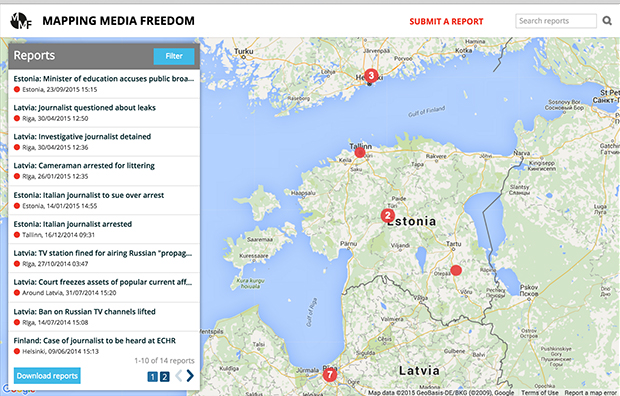On 19 September, the Estonian Minister of Education, Jürgen Ligi, accused the Estonian Public Broadcaster’s new Russian-language TV channel of disclosing secret government data.
The news report that sparked Ligi’s accusation dealt with the government’s proposal to teach high school students in Estonian. This move has been seen as ignoring the rights of the Russian-speaking minorities in the country.
Ligi implied that the report caused difficulties for the government. He also announced that, as the information was most likely leaked, there would be an official investigation. The head of the news department at the public broadcaster ETV, Urmet Kook, has already explained that the information was not received through a leak but was discovered during a routine check of public documents on different ministries.
This is the latest in a series of actions by the government against the media for disclosing data. Politicians see themselves as having a monopoly on truth and consider the press as nothing more than troublesome meddlers.
There are no specific laws relating to the media in Estonia, so all commercial outlets — apart from broadcast channels — are governed like any other business. The diverse legal landscape is subject to many different interpretations and there are no defined meanings of terms like ‘public interest’ and ‘public figure’, which makes it difficult for journalists to operate.
A typical example of the excessive limitations on the media is the Act on Defence of Personal Data. On first glance, it appears to be a noble attempt to defend sensitive information about the private lives of individuals, such as political affiliations, race and heritage. However, a closer look shows that it effectively prevents many journalists from uncovering information in the public interest. For example, a hospital denied a journalist access to information relating to a lump sum payment made in compensation for malpractice. In another case, a press officer at the Office of Public Prosecutor refused to acknowledge a criminal investigation into a well-known businessman. On both occasions, the reason for refusing to disclose the data was its sensitive nature.
Some caution is understandable. Any ethical person understands the necessity of the right to privacy. But over zealous and arbitrary enforcement makes it very difficult for journalists to warn the public of corruption, crime and dangerous individuals. With the protection offered by the act, released convicts can demand media outlets remove a story relating to their crimes, trials and sentences. Offenders can effectively hide in plain sight.
While these legal hurdles are a fact of life for many journalists, freelancers face extra obstacles. Larger media companies are given preferential treatment by the government, as are journalists who present information in the desired way. Estonian media channels also tend not to work with freelancers on a one-time basis. Such practices hurt freelance journalists, especially younger writers who lack established sources and connections. Without proper access to information, they are deprived of a proper livelihood.
Mapping Media Freedom
|





